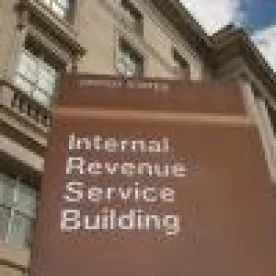On September 29, 2016, the IRS released new guidelines under its Employee Plans Compliance Resolution System (EPCRS). EPCRS consists of three programs by which plan sponsors can correct plan documentation or operational errors – the Self-Correction Program, the Voluntary Correction Program and the Audit Closing Agreement Program. Rev. Proc. 2016-51 supersedes the older guidelines (Rev. Proc. 2013-12) and incorporates certain more recent developments affecting qualified plan corrections. Below are the key changes that plan sponsors should be aware of:
1. Coordination with Determination Letter Program. As set forth in Proc. 2016-37, the IRS has curtailed its determination letter program with respect to individually-designed plans. Rev. Proc. 2016-37 formalized what the IRS had for months said was coming – the remedial amendment cycle program, which permitted individually-designed plans to file for a determination letter every five years, is ending effective January 1, 2017. Beginning on that date, plan sponsors may request a determination letter for an individually-designed plan only if the plan has never received a letter (such as a new plan) or the plan is terminating. Note that the final cycle, Cycle A, does not end until January 31, 2017, so Cycle A filers are permitted to submit determination letter applications until that date.
The new limited determination letter program created uncertainty under existing EPCRS guidance because applications for correction under EPCRS often required contemporaneous submission of a determination letter application. Additionally, to use the self-correction procedures under EPCRS for significant errors, a plan needed to have a current determination letter. Rev. Proc. 2016-51 modifies the EPCRS guidance to clarify that (i) determination letter applications are no longer required when applying for correction under EPCRS (including correction by a plan amendment) and (ii) self-correction for significant errors is available as long as the plan has a determination letter (whether or not “current”).
2. Incorporation of Rev. Procs. 2015-27 and 2015-28. In 2015, the IRS modified EPCRS guidelines to provide alternative correction options for certain overpayments (Proc. 2015-27) and to relax correction requirements for certain elective deferral errors (Rev. Proc. 2015-28). The new EPCRS guidelines incorporate these modifications and supersede the 2015 Revenue Procedures.
3. Fees. The new EPCRS guidelines no longer set forth the filing fees owed for use of the correction program. Instead, fees will published annually by the IRS.
4. Audit CAP Program. The new guidelines modify the IRS method of determining sanctions under the Audit Closing Agreement Program (Audit CAP). Under this program, if significant plan errors are uncovered during audit or examination (i.e., the plan sponsor does not voluntarily seek correction before the IRS finds the error(s) on audit), the plan sponsor is entitled to use the Audit CAP. Prior to Rev. Proc. 2016-51, sanctions under Audit CAP were a negotiated percentage of the maximum payment amount, which is based on the potential tax liability that would be incurred in open tax years if the plan was actually disqualified. Under the new EPCRS guidelines sanctions are no longer solely determined based on the maximum payment amount. Instead, the maximum payment amount will be one of many facts and circumstances that the IRS will take into account when determining the sanction.
5. Anonymous VCP Fees. Under the Voluntary Correction Program (VCP), plan sponsors are able to submit a plan to the IRS anonymously and get conditional approval of a proposed correction prior to identifying the plan and plan sponsor. If approval cannot be obtained, a plan sponsor can withdraw the application. The current guidelines provide that the IRS will refund 50% of the VCP filing fee if the anonymous application is withdrawn. Effective January 1, 2017, however, the IRS will no longer refund any portion of the user fee if an anonymous VCP application is withdrawn.
Rev. Proc. 2016-51 provides a necessary update of the EPCRS guidelines because of the changes to the determination letter program. The new EPCRS guidelines are technically effective beginning January 1, 2017, but many of the changes reflect prior guidance (such as Rev. Procs. 2015-27 and 2015-28) that has been effective for quite some time. Additionally, the IRS has informally indicated that although plan sponsors can submit determination letter applications along with VCP submissions for the remainder of 2016 (in accordance with Rev. Proc. 2013-12, as modified), the IRS will not require them to do so.



 />i
/>i
